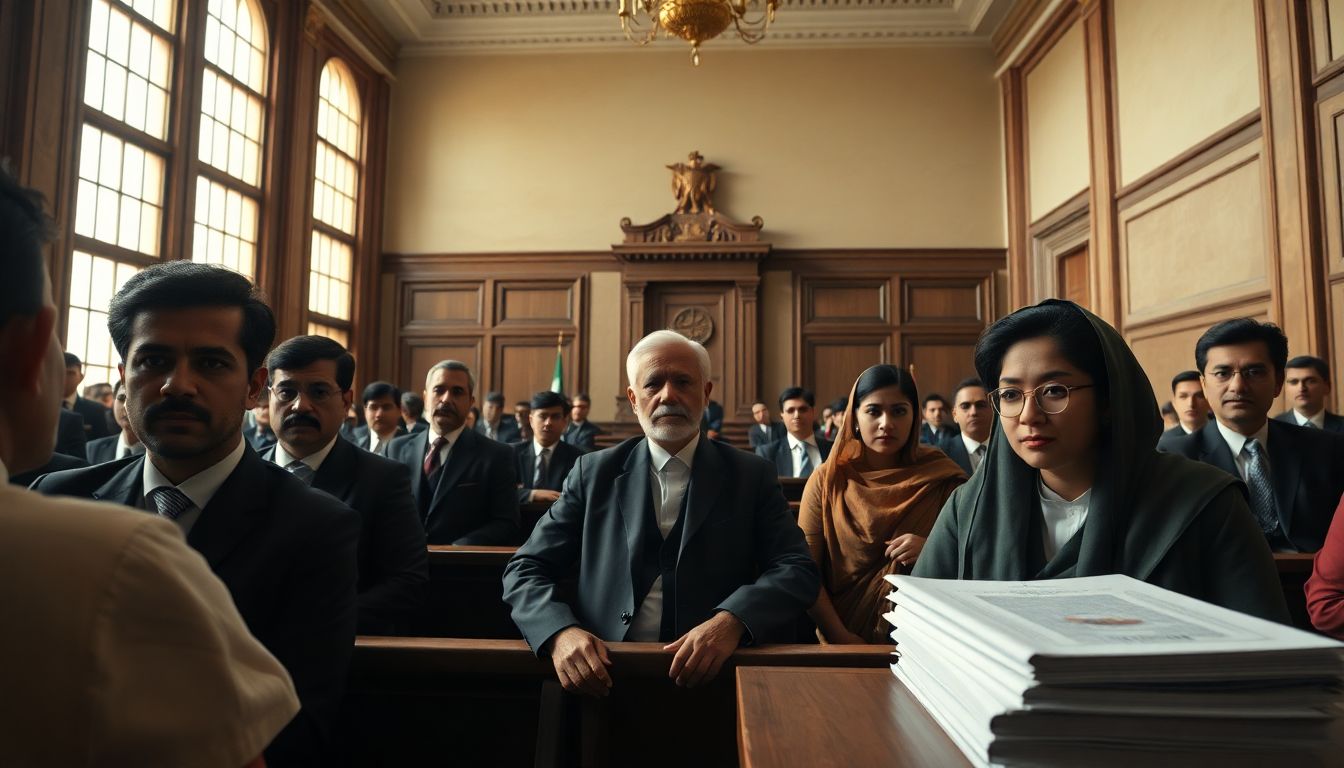Understanding Pakistani Law: A Comprehensive Guide
Navigating the legal landscape in Pakistan can feel daunting. With its unique blend of constitutional, Islamic, and customary laws, understanding the law in Pakistan is crucial not just for lawyers but for every citizen. This guide breaks down key aspects of the legal system, making it easier to grasp how it works.
The Complexity of Pakistani Law: A Brief Overview
Pakistan’s legal system is a tapestry woven from various elements. These include:
- Islamic Law: A significant influence rooted in the Quran and Sunnah.
- British Common Law: Derived from colonial rule, it plays a role in modern legal practices.
- Local Customs: Different regions have unique customs that affect legal decisions.
This combination creates a complex framework, but it’s essential for understanding rights and responsibilities in Pakistan.
Why Understanding Pakistani Law Matters
Grasping the legal framework can empower citizens. Here’s why knowledge of the law is essential:
- Protection of Rights: Knowing the law helps individuals protect their rights.
- Informed Citizenship: An informed citizenry can engage in national dialogue.
- Access to Justice: Understanding legal options increases access to justice.
The Sources of Law in Pakistan: A Multifaceted System
The law in Pakistan arises from multiple sources, including:
- The Constitution: The supreme law of the land.
- Legislation: Laws passed by Parliament.
- Judicial Precedents: Court decisions that shape future rulings.
- Islamic Sharia: Laws derived from Islamic texts.
This diversity ensures a more comprehensive legal system, accommodating a wide range of perspectives.
The Constitution of Pakistan: The Supreme Law of the Land
The Constitution serves as the backbone of Pakistani law.
Key Principles and Fundamental Rights Enshrined in the Constitution
The Constitution guarantees several fundamental rights, including:
- Right to life and liberty
- Freedom of speech
- Right to education
These rights form the foundation for justice and equality in society.
The Role of the Supreme Court and Judicial Review
The Supreme Court holds the power to interpret the Constitution and review laws. It ensures that all laws comply with constitutional standards, maintaining the integrity of the legal system.
Recent Constitutional Amendments and their Impact
Recent amendments have addressed:
- Gender equality
- Economic rights
- Judicial reforms
These changes reflect society’s evolving needs and the importance of responsive governance.
Islamic Law’s Influence on Pakistani Jurisprudence
Islamic principles significantly shape many areas of law in Pakistan.
The Application of Islamic Principles in Various Legal Fields
Islamic law governs family matters, inheritance, and contracts. This ensures that legal practices align with cultural and religious values.
The Role of the Federal Shariat Court
This court ensures that laws comply with Islamic principles. It provides a mechanism for addressing conflicts between secular and Islamic laws.
Balancing Islamic Law with Secular Legal Frameworks
Navigating the balance between these two systems can be challenging. Collaboration and dialogue between legal scholars help address these complexities.
The Structure of Pakistan’s Court System
Pakistan’s court system is structured to ensure justice at various levels.
Hierarchy of Courts: From District Courts to the Supreme Court
- District Courts: Handle most civil and criminal cases.
- High Courts: Appellate courts for district decisions.
- Supreme Court: The highest appellate court in Pakistan.
Jurisdiction and Powers of Different Courts
- District Courts: Local matters and smaller claims.
- High Courts: Appeals and constitutional issues.
- Supreme Court: Final authority on legal interpretations.
Access to Justice: Challenges and Reforms
Access to justice remains a challenge. Issues like legal aid availability and lengthy processes often hinder fair trials. Reforms aim to improve access, efficiency, and transparency.
Key Areas of Pakistani Law
Understanding specific areas of law can guide individuals in various situations.
Criminal Law: Crimes, Procedures, and Punishments
Criminal law addresses offenses against the state.
Notable Criminal Cases and Legal Precedents
Historic cases have shaped public perception and policy. Noteworthy examples include high-profile trials that brought legal accountability into focus.
Challenges in Criminal Justice Administration
- Delay in Trials: Backlogged courts can prolong cases.
- Corruption: Challenges in maintaining integrity within the system.
Family Law: Personal Laws and their Application
Family law varies based on religion and personal beliefs.
Differences in Personal Laws Based on Religion
- Muslim Family Law: Governed by Islamic practices.
- Hindu Family Law: Based on Hindu customs.
Recent Legal Reforms in Family Law
Recent reforms aim to address gender disparities and improve women’s rights within family settings.
Contract Law: Agreements, Enforcement, and Disputes
Contract law governs agreements between parties.
Key Principles of Contract Law in Pakistan
- Offer and Acceptance: Essential elements for valid contracts.
- Consideration: Something of value exchanged.
Dispute Resolution Mechanisms in Contract Law
Mediation and arbitration are preferred to court proceedings, offering quicker resolutions.
Navigating the Legal System: Tips and Resources
Understanding how to navigate the legal system is vital for effective engagement.
Seeking Legal Counsel: When and How
Finding a qualified lawyer is crucial for complex legal issues. Look for:
- Specialization
- Experience
- Recommendations
Understanding Legal Fees and Costs
Legal fees vary widely. Discuss costs upfront to avoid surprises later.
Accessing Legal Aid Services in Pakistan
Many organizations offer legal aid for those unable to afford representation. Seek local resources for support.
Conclusion: Key Takeaways and Future Directions
In summary, Pakistan’s legal landscape is intricate but essential for safeguarding rights and promoting justice.
Summary of Pakistan’s Complex Legal Framework
From the Constitution to personal laws, every aspect works together to outline rights and responsibilities.
Importance of Legal Awareness and Citizen Engagement
Being aware of legal rights fosters engagement and accountability.
Future Trends and Challenges in Pakistani Law
As society evolves, laws will need to adapt. Challenges like technology and globalization will shape future legal frameworks.
Understanding law in Pakistan not only informs but empowers citizens, driving a culture of justice and participation.


